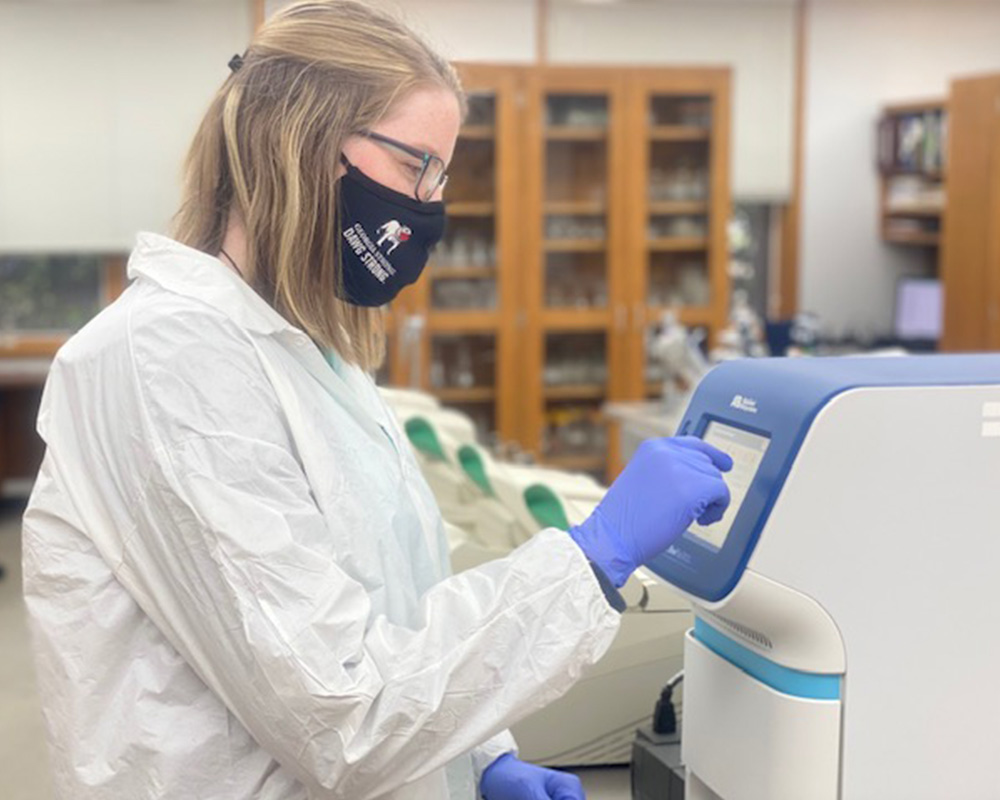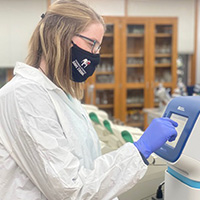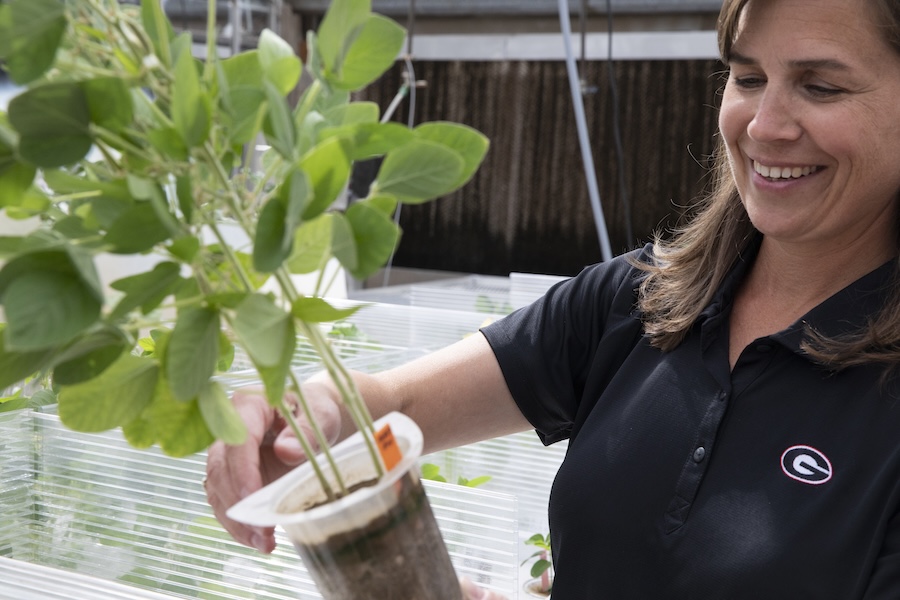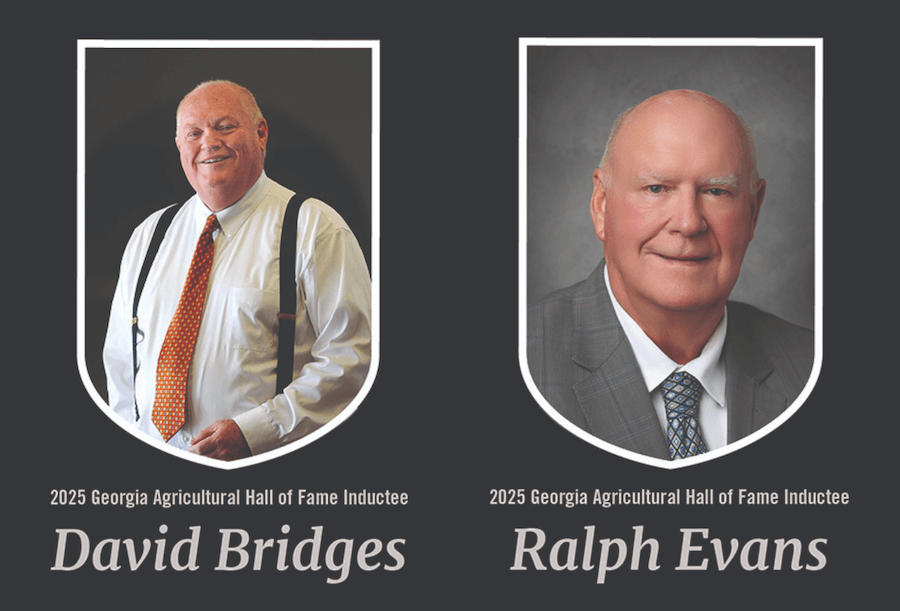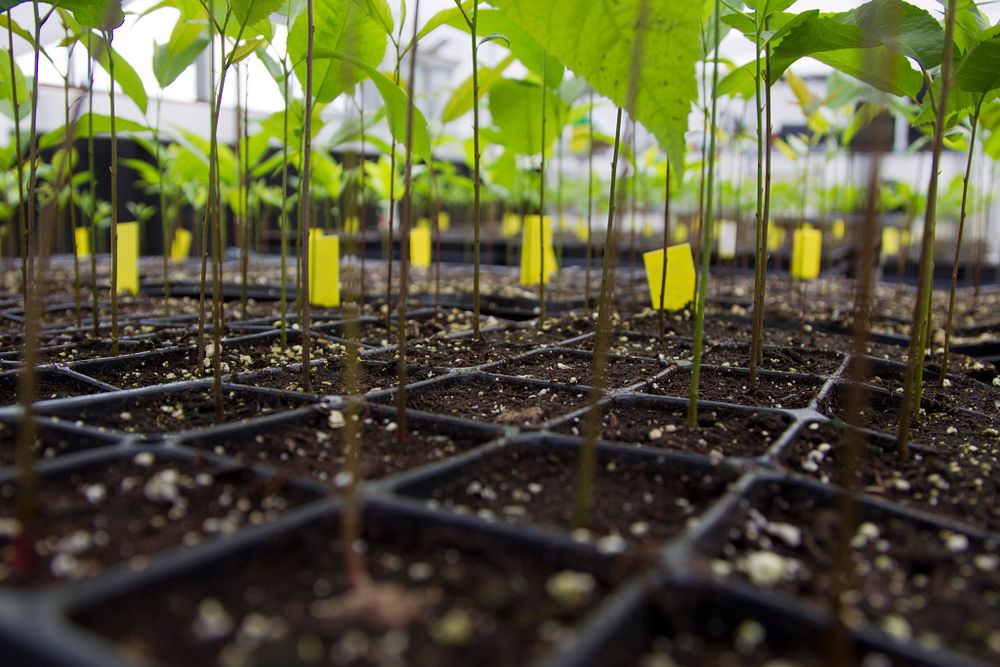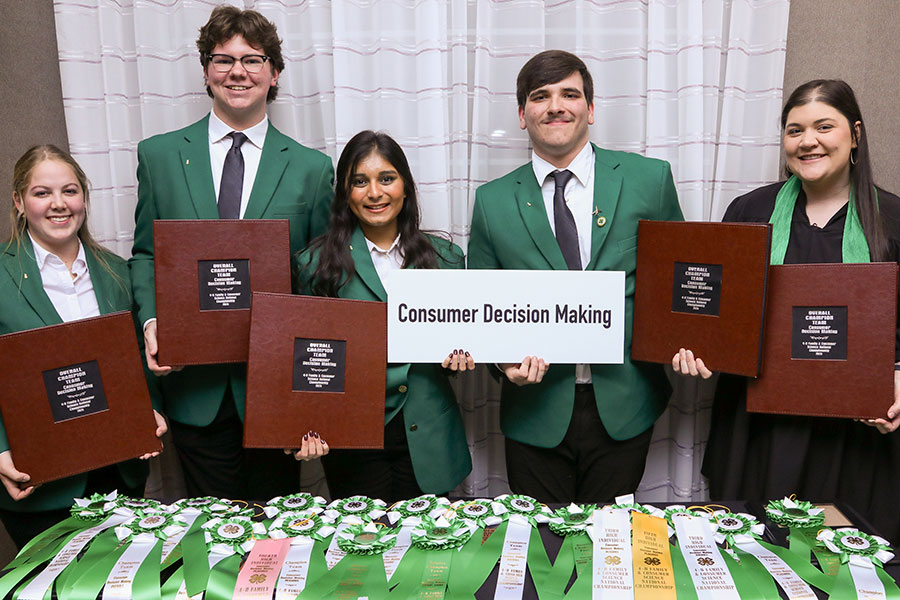Samantha Wegener enrolled at the University of Georgia’s Tifton campus after earning her associate’s degree in biology from the Technical College of the Lowcountry in Beaufort, South Carolina. It was during her last semester in Beaufort that Wegener was introduced to the world of plant breeding.
“I had a biology teacher who introduced me to the issues of limited diversity and genetic bottlenecks in plant breeding. Then I had a biotechnology teacher who introduced me to the tools available to agricultural scientists now,” explained Wegener.
At UGA’s College of Agricultural and Environmental Sciences, Wegener discovered precision plant breeding — the combination of gene editing and engineering — which showed her a path to solving complicated issues in improving plant varieties. Her interest led her to Professor Peng Chee's lab on the UGA Tifton campus.
In Chee’s molecular cotton breeding lab, Wegener is participating in a research project to improve cotton fiber quality. Specifically, her work focuses on understanding the expression of genes that have been transferred from sea island cotton (Gossypium barbadense) into upland cotton (Gossypium hirsutum) through transcriptomics — the complete set of RNA transcripts produced by the cotton genome. Her ultimate goal was to identify the genes that enhance the length of cotton fibers through the hybridization of the two species. Wegener received a small grant from the CAES Undergraduate Research Program to fund her research, and this past January she presented her results at the Beltwide Cotton Conference, the top cotton research conference in the country.
Wegener’s work is already being nationally recognized. She is one of six students selected as a 2021 Borlaug Undergraduate Scholar, a highly competitive program awarded by the National Association of Plant Breeders. As Wegener’s mentor, Chee pushed her out of her comfort zone and encouraged her to apply.
“Sam is very intelligent, has a strong work ethic and is highly driven to pursue her career goal of becoming a plant breeder. I believe Sam has a bright future and has great potential to make a significant impact in the field of plant breeding and genetics,” Chee said.
After completing the extensive scholarship application, Wegener was shocked to learn she had won.
“I still have a bit of imposter syndrome because I am still so new to the field, but it has really awakened something in me confidence-wise,” said Wegener.
This summer, Wegener is working with Christopher Saski, associate professor of systems genomics at Clemson University, to use CRISPR technology to study the function of the genes she has identified. In the Saski Lab, she is developing her plant breeding skill set by learning transformation technology. Saski has been a long-time collaborator with Chee, and Wegener hopes that, by accessing this technology, she will be able to offer new clues on how to improve the quality of cotton fibers.
After earning her bachelor’s degree in agriscience and environmental systems with an emphasis in plant breeding and genetics, Wegener plans to pursue a master’s degree through UGA’s Institute of Plant Breeding, Genetics and Genomics while continuing to work in the Chee lab. Her goal is to continue her work in plant genetics to make discoveries in plant breeding and contributions to the agricultural biotechnology improvement.

